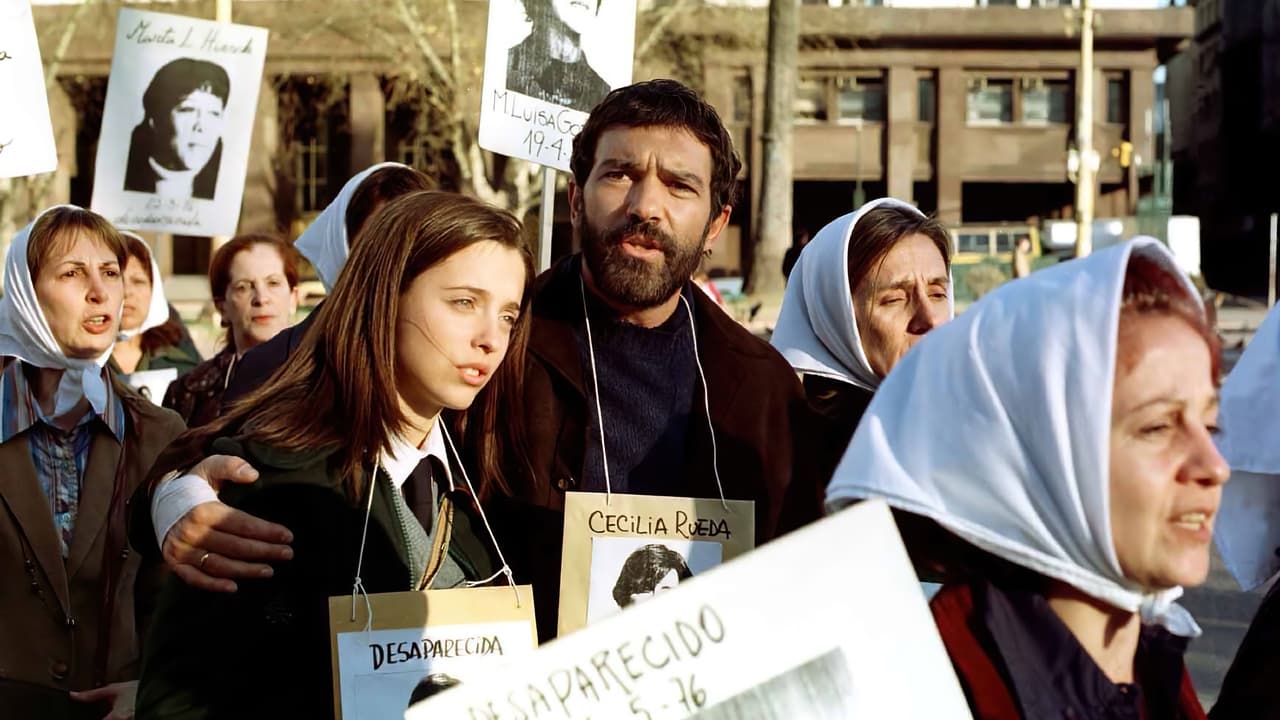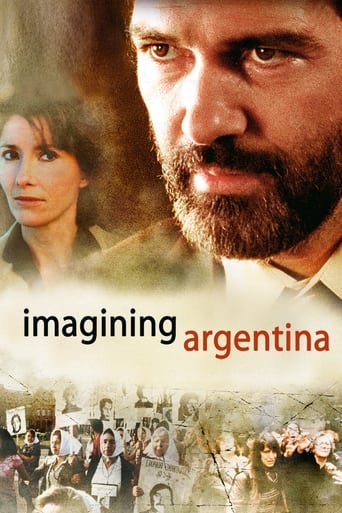

If you have to resort to chicanery including the likes of clairvoyance, many explicit scenes of sodomizing 'actors', child rape and other equal horrors to get your message across well then you should place 'phony' in your title.Not only was the film's major theme (unlawful detention of political opponents) overshadowed by the much porn shooting, the whole purpose for producing this trash remains unclear.The producers/directors/actors together should be ashamed for participating in this folly. By far this is the 'worst of the worst' of any international films I've viewed.Moreover, I can't believe that anyone would financially back such poppycock. Well, believe it or not, they did but to their disgrace.This film doesn't even deserve a single star. Really, I wish I could get back the whole two hours I wasted.
... View MoreI was truly saddened as I watched this--as it hit me that the real tragedy of this time period was being used as a backdrop for a suspense story about a man who discovers his powers of clairvoyance. See "The Official Story" or "Missing," as another person mentioned on this message board, for a real sense of what happened.The gratuitous scenes of torture and death reflect a terrible lack of understanding of what went on in that country.The purpose of this film does not appear to be to shed light on any sort of reality of what happened, but rather to tell some sort of fictitious hero's story. It plays upon the deepest wishes of the victims of a tragedy for an outcome different from what really happened. Ridiculous and infuriating.
... View MoreArgentina's Dirty War and the regime of the Generals from 1976 to 1983 is one of the dark secrets of history and has been examined by poets, writers such as Colm Toibin (and here, Lawrence Thornton in his novel from which the film was adapted), and journalists. And yet the silence about this period of time is deafening, especially since the amnesty this past June releasing the perpetrators from all responsibility of this terrifying activity and time in Argentina. Now, with the current 'silencing' of our own covert CIA activities and tortures in the name of a fight against terrorism, this overlooked film takes on particular potency. And for whatever reasons the film doesn't succeed as a great movie, at least it is a red flag bravely waving.In 1976 the intellects, professors, journalists and writers began disappearing, kidnapped, taken to secret hideaways, tortured, raped, and disposed of all in the guise of protecting the viability of the military regime. Carlos (Antonio Banderas) runs a children's theater and is married to Cecilia (Emma Thompson) who writes articles about the "desaparecidos" despite the warnings from Carlos and their close friends Silvio (Rubén Blades) and Esme (Maria Canals). Their daughter Teresa (Leticia Dolera) is a young girl who is conflicted about the feelings of her parents in this scandalized government. Cecilia is abducted, becomes one of the dreaded desaparecidos, and Carlos commits himself to finding her. He discovers he has clairvoyant powers and holds meetings in his garden to help parents and loved ones of the desaparecidos to cope. Working with Teresa he tries to envision Cecilia's whereabouts and the film's dénouement and conclusion deal with this breathless seeking.The acting if good as expected from this cast. The direction is fast paced, but the problem is one of distance from the passion of Carlos. For some reason Banderas elected to keep such a low profiles that his desperation to find Cecilia is somewhat muted. But as stated above the real success of this fine little film is the message it carries and that message is too close to home to ignore. The musical score and cinematography (and the incidental wonderful Tango dancing) are superb. Recommended. Grady Harp
... View MoreUnlike 'bonbonsf' just said, i do think that those heavier scenes should be included in the film. That makes the big impact. I don't think it would have such a big impact on me without those scenes. Offcourse it's terrible what happened and it should never happen again. But torture, rape and murder were things that happened every single day in Argentina in the 1976-1983 period.I honestly think it's a good movie. It's about ordinary men, women and children, who are in this strange situation. No one will protect them, as everything is as corrupt as... It's a sad movie but brings to live "the truth", as it actually happened; and never should happen again. "Nunca más"
... View More